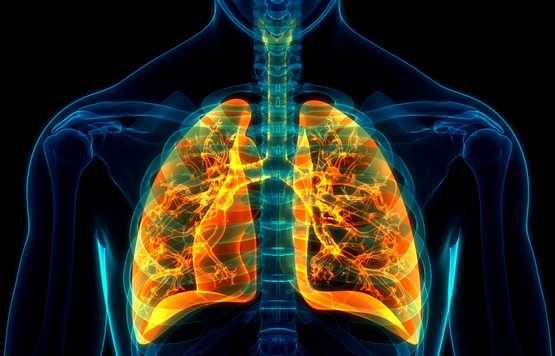Nikhil Prasad Fact checked by:Thailand Medical News Team Jul 25, 2025 7 months, 3 hours, 39 minutes ago
Medical News: A new Italian study has revealed that even mild or symptom-free cases of COVID-19 can cause lasting lung function decline—particularly in healthcare workers who smoke or had multiple infections. The findings, which raise serious concerns about long-term respiratory health, come from researchers at the University of Rome Tor Vergata and Saint Camillus International University of Health Sciences.
 COVID-19 Infection Leads to Lasting Lung Damage in Health Workers
Subtle Lung Damage Detected Years After Infection
COVID-19 Infection Leads to Lasting Lung Damage in Health Workers
Subtle Lung Damage Detected Years After Infection
The research involved 103 healthcare workers who underwent lung function testing (spirometry) before the pandemic, and then again one and two years after COVID-19’s peak. This
Medical News report shows that even those who never experienced severe COVID symptoms demonstrated a clear, measurable decline in their lung performance over time.
The two primary lung measurements tracked were FVC (forced vital capacity) and FEV1 (forced expiratory volume in one second). Both showed statistically significant decreases in the years following the pandemic, with the greatest declines observed among smokers and individuals who had been infected more than once.
Smoking and Reinfection Made Things Worse
While most participants had mild or asymptomatic COVID-19, the study found that reinfections—and smoking in particular—led to sharper and more persistent drops in lung function. Smokers in the group saw more severe declines in both FVC and FEV1 than non-smokers, suggesting a compounding effect between smoking and COVID-induced lung injury.
Interestingly, individuals who contracted COVID-19 in 2021—during the wave dominated by the Delta variant—showed the largest lung function losses. However, the study also found that even one year after reinfection, some lung capacity had not returned to pre-pandemic levels, indicating potential long-term damage.
No Protection from Age or Vaccination
One of the more concerning findings was that factors like age, gender, BMI, and even COVID vaccination status before infection did not significantly alter the decline in lung function. This suggests that even healthy, vaccinated individuals who never developed severe COVID symptoms are not immune from the virus’s lingering impact on their lungs.
The research also ruled out other common influences on lung health, making the connection between COVID-19 and this silent, long-term deterioration even more striking.
Long-Term Monitoring Is Urged
The authors warn that these subtle declines—while not always immediately noticeable—could pose risks for long-term health, particularly in workers who rely on good respiratory capacity. They advocate for continued lung monitoring and preventive strategies, especially among smokers and those in high-risk occupations like healthcare.
In conclusion, this study shows that even m
ild or unnoticed COVID-19 infections can cause ongoing damage to the lungs. The impact is more severe in smokers and those reinfected, and the effects may persist for years. These findings underscore the importance of lung function monitoring, smoking cessation, and reinfection prevention, especially in occupational health settings.
The study findings were published in the peer reviewed journal: Biomedicines
https://www.mdpi.com/2227-9059/13/8/1809
For the latest COVID-19 News, keep on logging to Thailand
Medical News.
Read Also:
https://www.thailandmedical.news/news/respiratory-viruses-like-flu-and-sars-cov-2-fuel-drug-resistance-and-tumor-progression-in-lung-cancer
https://www.thailandmedical.news/news/australian-study-uncovers-roles-of-the-kynurenine-pathway-in-covid-19-neuropathogenesis
https://www.thailandmedical.news/news/covid-19-news-cardiologists-warn-that-post-covid-subacute-hemorrhagic-pericardial-tamponade-can-mimic-carcinomatous-pericarditis
